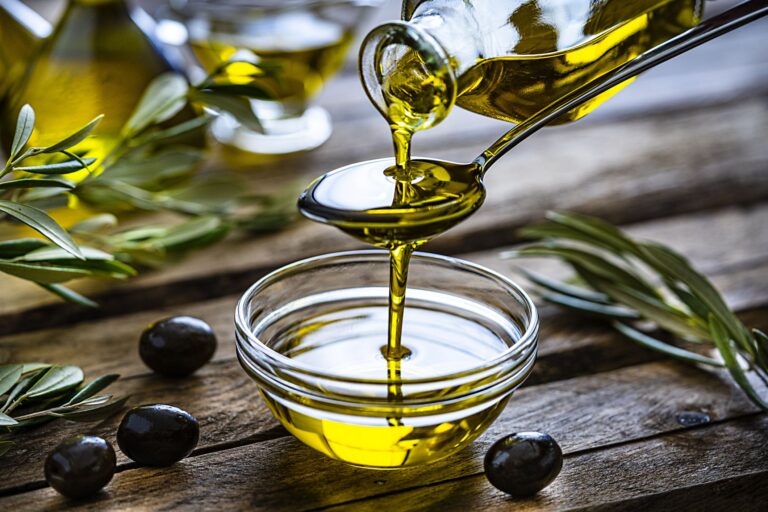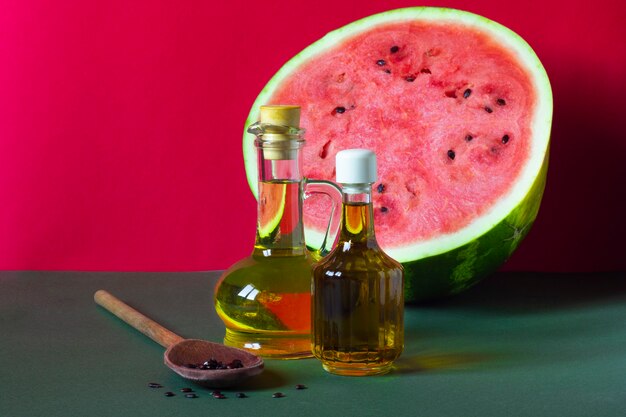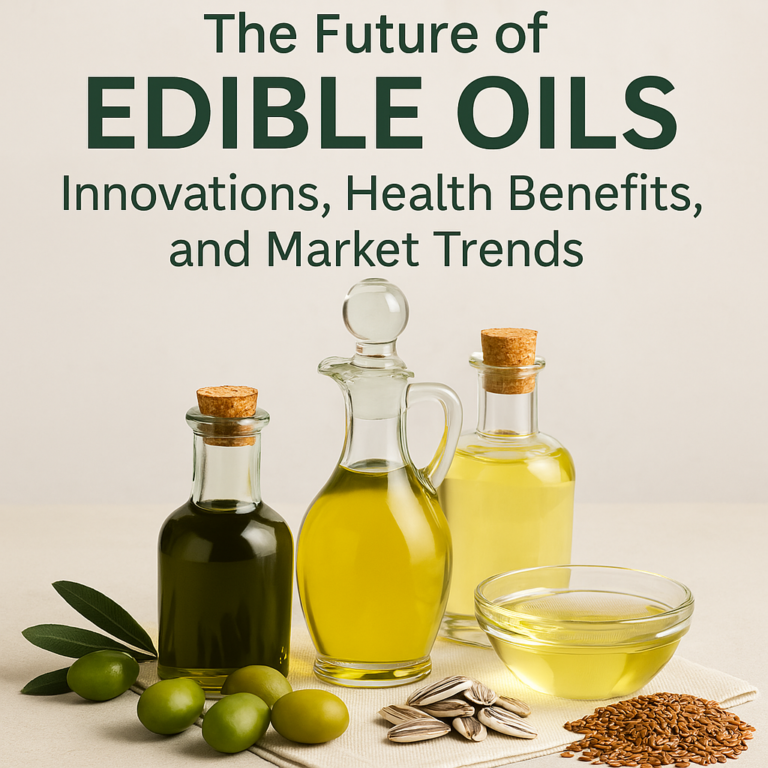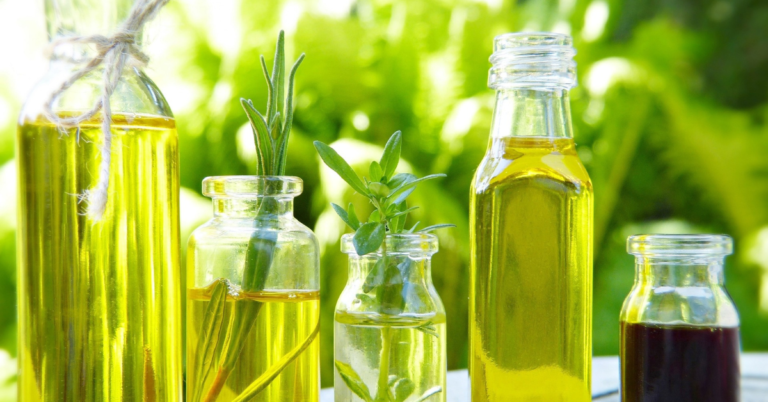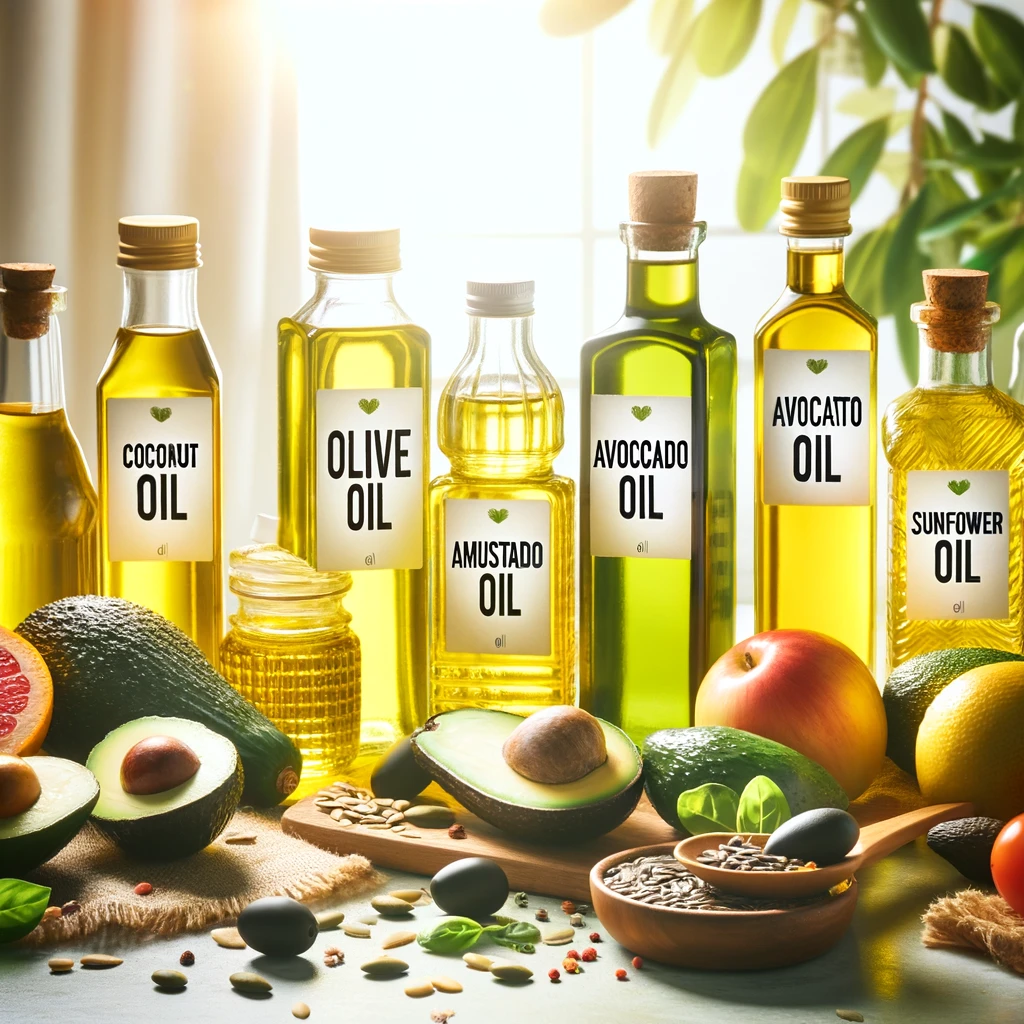
Introduction: The Edible Oil Dilemma
Maria stood inside the grocery store, gazing at the countless rows of edible oils. Should she select olive oil, the “golden standard” of heart health, or should she opt for coconut oil, with its promises of brain-boosting benefits? Then there was avocado oil, trendy and new, along with mustard oil, the familiar staple of her childhood meals. Like many health-conscious individuals today, Maria was confused. Each oil had a number of claims, and every label boasted health benefits. In today’s world of overwhelming choices, it’s not easy to pick the right oil. Understanding the health benefits of vegetable oil and the impact of each type of edible oil can help us make an informed decision.
In this article, we will explore the historical journey of edible oils, delve into the health benefits of specific oils, and break down how their composition can influence our well-being. You’ll also learn about the refining processes, the environmental impact of edible oil, and the critical difference between cold-pressed oils and refined oils to help you choose the best option for your health and lifestyle.
What is Edible Oil?
What is edible oil? It refers to any fats extracted from plants, seeds, nuts, and fruits that are safe for consumption. These oils have been used for centuries in various cultures, primarily for cooking and flavoring. However, in modern times, edible oils have become more than just cooking mediums. They play an important role in nutrition, with many oils offering unique health benefits, ranging from reducing inflammation to improving cardiovascular health.
Modern edible oil refining processes have transformed these oils by removing impurities and stabilizing their shelf life. Choosing the right oil can significantly impact your health, especially if you are focused on wellness goals like heart health, brain function, and weight management.
Historical Journey of Edible Oils
Edible oils have a long and rich history. The ancient Egyptians used olive oil, a prized ingredient of their time, not only for cooking but also for religious rituals and skincare. In India, people have used mustard oil for centuries as a cooking oil due to its distinct pungency and antibacterial properties. Similarly, in the tropics, coconut oil was essential for cooking and skincare.
In the 21st century, the rise of processed food industries led to an increase in the consumption of refined oils like canola, sunflower, and palm oil. Palm oil, in particular, has become the most consumed edible oil globally. However, concerns about the environmental impact of palm oil production have driven demand for more sustainable options.
Refining Process for Edible Oil
To understand the health benefits of oils, it is important to know how they are processed. Edible oil refining involves removing impurities such as free fatty acids, phospholipids, and other contaminants. While refining makes oils more stable for cooking and improves their shelf life, it can also strip away important nutrients.
Key refining steps include:
- Degumming: Removes phospholipids and impurities from the oil.
- Neutralization: Free fatty acids are neutralized to reduce acidity.
- Bleaching: Pigments and unwanted substances are removed.
- Deodorization: Steam treatment at high temperatures removes odor-causing compounds.
Many health-conscious individuals are turning to cold-pressed oils, which retain more of their natural nutrients since they are extracted without heat, though refined oils work better for high-heat cooking.
Olive Oil
Often referred to as “liquid gold,” olive oil is rich in unsaturated fats, particularly oleic acid, which has been linked to reduced inflammation and better heart health. Studies show that regular consumption of olive oil can reduce the risk of heart disease by 30%. Additionally, the polyphenols in olive oil act as antioxidants, further reducing oxidative stress in the body.
The Mediterranean diet consistently ranks among the world’s healthiest diets, largely due to its heavy use of olive oil. If you prioritize heart health, many recommend extra virgin olive oil as the best choice since it is minimally processed and retains more nutrients.
Coconut Oil vs. Olive Oil
Coconut oil has gained popularity due to its unique composition of medium-chain triglycerides (MCTs), which are easily metabolized by the liver and quickly used as a source of energy. This has made coconut oil popular for those following ketogenic and other low-carb diets.
However, coconut oil is high in saturated fats, raising concerns among nutritionists about its long-term effects on heart health. On the other hand, olive oil is heart-healthy due to its monounsaturated fats. While coconut oil may offer cognitive and metabolic benefits, olive oil remains the superior option for those focusing on heart health.
Benefits of Avocado Oil
Avocado oil is relatively new to the edible oil market, but it has quickly become a favorite among health-conscious individuals. Rich in monounsaturated fats and antioxidants like vitamin E, avocado oil supports heart health, tightens the skin, and reduces inflammation. It has a high smoke point, making it ideal for grilling and frying without losing its health benefits.
Studies show that avocado oil can improve cholesterol levels by lowering LDL (bad cholesterol) and increasing HDL (good cholesterol).
Mustard Oil: A Hidden Gem
In India, mustard oil has been a staple for centuries. Despite its sharp taste, mustard oil is full of omega-3 fatty acids and has been shown to lower bad cholesterol while increasing good cholesterol. Additionally, mustard oil has antibacterial properties that can benefit skin health and help reduce inflammation.
Cold-Pressed Oils Are Healthier
Many health experts believe that cold-pressed oils are healthier than refined oils because the extraction process involves no heat, preserving natural nutrients. Popular cold-pressed oils include flaxseed, sesame, and sunflower oil. These oils are rich in omega-3 fatty acids and polyphenols, which can reduce inflammation and support heart health.
Health Benefits of Vegetable Oils
Vegetable oils, such as canola, soybean, and sunflower oils, are rich in polyunsaturated fats, particularly omega-6 fatty acids. These oils are often praised for their ability to lower LDL cholesterol. However, research suggests that an imbalance between omega-6 and omega-3 fatty acids can lead to inflammation. Therefore, it is important to complement vegetable oils with sources of omega-3, such as fish oil or flaxseed oil.
Essential Oils vs. Extract Oils
When discussing edible oils, it’s essential to recognize the growing interest in essential oils vs extract oils. While these oils are not typically consumed, they offer numerous therapeutic benefits, including aromatherapy and skincare. Essential oils like lavender, peppermint, and eucalyptus are known for their calming and invigorating effects, while extract oils are commonly used for their anti-inflammatory properties in cosmetics.
Environmental Impact of Edible Oil Production
One of the biggest concerns surrounding the consumption of edible oils today is their environmental impact. Palm oil, for instance, has been widely criticized for its role in deforestation, loss of biodiversity, and displacement of indigenous communities in tropical regions. As the most consumed edible oil globally, the environmental cost of palm oil production is substantial.
Fortunately, organizations like the Roundtable on Sustainable Palm Oil (RSPO) are working toward creating more ethical, environmentally friendly palm oil production practices. Consumers should look for RSPO-certified products to make more environmentally conscious choices.
How to Store Edible Oils to Preserve Freshness
The way you store edible oils can greatly impact their freshness and nutritional value. Oils that are high in polyunsaturated fats, such as flaxseed oil and walnut oil, are particularly susceptible to oxidation and should be kept in the refrigerator. Always store oils in a cool, dark place and tightly seal the containers to prevent exposure to air. Most oils, especially cold-pressed oils, have a shorter shelf life and should be consumed within six months of opening.
Conclusion: The Future of Edible Oils
As we look to the future, it’s clear that the edible oil industry is evolving. From the rising interest in cold-pressed oils to concerns about the environmental impact of petrochemical oil alternatives, the choices we make today have long-lasting effects on our health and the planet. Additionally, the shift towards more sustainable practices in palm oil production and the growing demand for nutrient-rich, minimally processed oils suggest that the future of edible oils is moving toward healthier and more ethical options.
When it comes to choosing the right oil, there’s no one-size-fits-all answer. The best edible oil for you depends on your individual health goals, whether that’s improving heart health, boosting brain function, or simply enjoying a more sustainable lifestyle.
Which edible oil will you choose to enhance your health and well-being?
